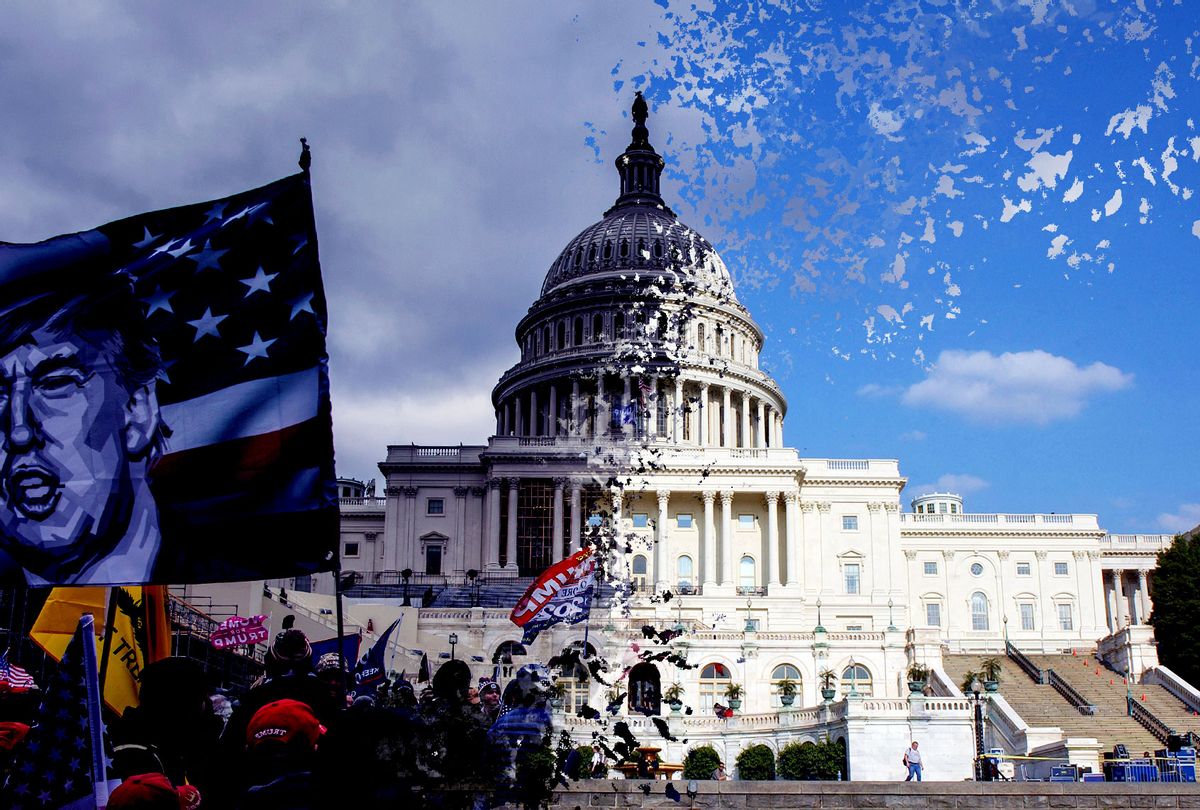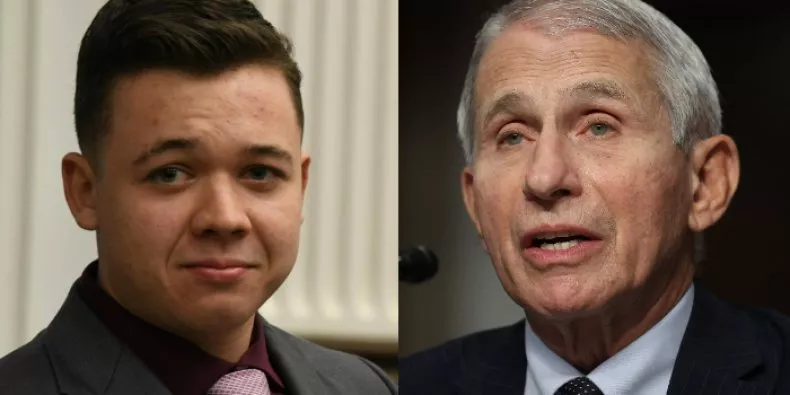Once again, the issues here are not political, exactly; they are about the underlying issues of how different people view the world, and come to starkly different conclusions, which just happen to reveal themselves politically.

The New Yorker, John Cassidy, 15 Nov 2021: How Republicans Are Distorting Inflation and Supply-Chain Problems, subtitled, “Prices are surging for reasons largely beyond Joe Biden’s control, but that won’t stop G.O.P. cries of ‘Bidenflation.'”
\
The Atlantic, Anne Applebaum, 15 Nov 2021: The Bad Guys Are Winning,
Subtitled: “If the 20th century was the story of slow, uneven progress toward the victory of liberal democracy over other ideologies—communism, fascism, virulent nationalism—the 21st century is, so far, a story of the reverse.”
\

Salon, Dan Froomkin, 18 Nov 2021: Media can’t decide on 2022 midterms: Normal politics or total apocalypse?, subtitled, “Some journalists grasp the danger of a Republican comeback — but too many others default to horse-race coverage”
A long noted issue: the media, at least the media attempting to be fair and not obviously partisan, have long followed a policy of “balanced coverage.” Covering both sides of an issue. If “one side” says something, then the “other side” must be given its fair hearing. (Though they never quite do this with obvious loonies, like giving flat-Earthers air time whenever NASA is discussed.) This was the FCC fairness doctrine introduced in 1949, but which was repealed in 1987 (during the Reagan years), and which then allowed obviously partisan news sites like…. well, you know. Even so, the MSM, main stream media, sites who attempt to be fair, still default to a “balanced” coverage which treats elections like horse-races, all about the polling and who will win the election, while avoiding any kind of analysis of the positions of the two parties, and which are coherent and which are not. But increasingly critics are calling out this “balance” as being irresponsible, for not calling out the obvious loonies, like QAnon and those flat-Earthers, and pretending their positions are just ordinary political disagreements with rational people.
Which brings us to…
\

Paul Krugman, The New Yorker, 16 Nov 2021: Policy and the Fog of Politics
In principle, voters should judge politicians by their actions; they should support politicians who pursue policies that help them, oppose politicians whose policies would hurt them. To do this, however, voters should have a reasonably good idea of what policy is doing.
Unfortunately, when it comes to economic policy — which should be the easiest kind of policy to evaluate, since its effects are visible in everyone’s daily life — there are few reasons to be optimistic about the relationship between policy and public opinion.
In a sensible world, voters would have both a reasonably accurate picture of what’s happening in the economy and a basic understanding of what aspects of the economy are under politicians’ control. In the world we live in, neither of these things is true.
This discusses the difference between the current economic statistics that indicate the economy is doing fine in many ways — reduced unemployment, and so on — while individuals polled think the opposite, based on gas prices and other inflationary issues. I think this is an example of how “all politics is local,” which to me means that most voters decides who to vote for based on their immediate personal experience, never mind the broad issues that affect the entire nation and all those people they don’t know.
The point is that it is not well understood that whatever a president does, whether Republican or Democrat, does not affect gas prices in the near term.
Krugman concludes:
Just to be clear, I’m not condemning voters for not being economic experts. People have children to raise, jobs to do, lives to live. Expecting them to be sophisticated policy analysts is unreasonable.
But the fact remains that public perceptions have become extremely disconnected from reality — economics is just one example. It’s a real conundrum. And if you’re waiting for me to propose solutions, well, not today.
\\
But here’s my favorite, today:

Newsweek, 18 Nov 2021: GOP Senate Candidate Calls Fauci a ‘Mass Murderer’ and Kyle Rittenhouse an ‘American Hero’
Jackson Lahmeyer, who is looking to oust Republican Senator James Lankford of Oklahoma, said America is “upside down” if Dr. Anthony Fauci, director of the National Institute of Allergy and Infectious Diseases (NIAID), can walk free and Kyle Rittenhouse is imprisoned.
…
“They worship a mass murderer. He belongs in prison,” Lahmeyer said in a Facebook live stream on Tuesday, referencing Fauci. “But Kyle Rittenhouse, who defends himself against a convicted pedophile, a convicted woman beater, is fighting for his life not to go to prison. Our nation is living upside down right now.”
Of course, I think *Lahmeyer’s* worldview is “upside down.” Fauci is a medical expert, responding to a very real pandemic, which has killed hundreds of thousands of people around the world; Kyle is a teenage thug who brought a big gun to a protest, looking for trouble, and killed two people who would not have died if he had just stayed home.






Ls&Cs: How People View the World, and Their Conclusions
Once again, the issues here are not political, exactly; they are about the underlying issues of how different people view the world, and come to starkly different conclusions, which just happen to reveal themselves politically.
The New Yorker, John Cassidy, 15 Nov 2021: How Republicans Are Distorting Inflation and Supply-Chain Problems, subtitled, “Prices are surging for reasons largely beyond Joe Biden’s control, but that won’t stop G.O.P. cries of ‘Bidenflation.'”
\
The Atlantic, Anne Applebaum, 15 Nov 2021: The Bad Guys Are Winning,
Subtitled: “If the 20th century was the story of slow, uneven progress toward the victory of liberal democracy over other ideologies—communism, fascism, virulent nationalism—the 21st century is, so far, a story of the reverse.”
\
Salon, Dan Froomkin, 18 Nov 2021: Media can’t decide on 2022 midterms: Normal politics or total apocalypse?, subtitled, “Some journalists grasp the danger of a Republican comeback — but too many others default to horse-race coverage”
A long noted issue: the media, at least the media attempting to be fair and not obviously partisan, have long followed a policy of “balanced coverage.” Covering both sides of an issue. If “one side” says something, then the “other side” must be given its fair hearing. (Though they never quite do this with obvious loonies, like giving flat-Earthers air time whenever NASA is discussed.) This was the FCC fairness doctrine introduced in 1949, but which was repealed in 1987 (during the Reagan years), and which then allowed obviously partisan news sites like…. well, you know. Even so, the MSM, main stream media, sites who attempt to be fair, still default to a “balanced” coverage which treats elections like horse-races, all about the polling and who will win the election, while avoiding any kind of analysis of the positions of the two parties, and which are coherent and which are not. But increasingly critics are calling out this “balance” as being irresponsible, for not calling out the obvious loonies, like QAnon and those flat-Earthers, and pretending their positions are just ordinary political disagreements with rational people.
Which brings us to…
\
Paul Krugman, The New Yorker, 16 Nov 2021: Policy and the Fog of Politics
This discusses the difference between the current economic statistics that indicate the economy is doing fine in many ways — reduced unemployment, and so on — while individuals polled think the opposite, based on gas prices and other inflationary issues. I think this is an example of how “all politics is local,” which to me means that most voters decides who to vote for based on their immediate personal experience, never mind the broad issues that affect the entire nation and all those people they don’t know.
The point is that it is not well understood that whatever a president does, whether Republican or Democrat, does not affect gas prices in the near term.
Krugman concludes:
\\
But here’s my favorite, today:
Newsweek, 18 Nov 2021: GOP Senate Candidate Calls Fauci a ‘Mass Murderer’ and Kyle Rittenhouse an ‘American Hero’
Of course, I think *Lahmeyer’s* worldview is “upside down.” Fauci is a medical expert, responding to a very real pandemic, which has killed hundreds of thousands of people around the world; Kyle is a teenage thug who brought a big gun to a protest, looking for trouble, and killed two people who would not have died if he had just stayed home.